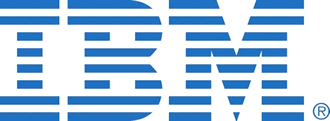 In many cultures, both in Asia and the West, crossroads are considered to be baleful places, associated with darkness, with death.
In many cultures, both in Asia and the West, crossroads are considered to be baleful places, associated with darkness, with death.
Why so? A crossroads is a place where you have to make decisions, to head off in a different direction, not really knowing what lies at the end of the route you choose.
Microsoft is at the crossroads.
The appointment of Satya Nadella as Microsoft’s CEO, replacing the somewhat understated Steve Ballmer, is a considerable challenge for the software behemoth.
And Bill Gates is back – spending a third of his hours – to help with Microsoft’s product strategy.
There are a few problems with the Gates move. Despite Microsoft’s undoubted success in the past, much of it was a product of accident coupled with very cunning marketing. It was, for example, IBM’s decision to adopt DOS as the operating system for the first PC which pulled Microsoft from obscurity into the limelight. Although Microsoft released its first version of Windows it was many years before Windows took off. Microsoft was never very good at inventing anything.
The stimulus for businesses to adopt the IBM PC was a clever piece of software from Lotus, 1-2-3. Even that spreadsheet was not a first because that honour belongs to Visicalc, for Apples. But Apples were and are expensive and in the 1980s large businesses adopted PCs because they would never be fired for buying IBM. The fact that PCs had Intel microprocessors inside meant that businesses were tying themself into a cartel which included. at that time, Microsoft and AMD too.
When companies and individuals first started adopting Windows, Microsoft had the field to itself for the introduction of application software was offered as a bundle. Its software was, in the late 1980s and early 1990s. judged inferior to offerings from the like of Lotus, Ashton-Tate and Borland – just as examples.
But now Microsoft, like its joined at the hip partner Intel, is lagging behind in the technology stakes, with both joining the smartphone and tablet revolution way too late. And we’ve seen a steady decline in sales of the PC for many quarters now. The gravy train has hit the buffers, or perhaps the cash cow is dead.
What’s interesting in the management reshuffle yesterday is that Symantec and former IBM senior executive John Thompson is now chairman of the Microsoft board, essentially meaning that Microsoft’s three main movers and shakers is a troika. Thompson should not be underestimated. He is a highly intelligent, astute businessman who has been trained in the school of hard knocks.
The big question is whether in the next 10 years will we see all those giants of the PC age – HP, Dell, Intel, Microsoft and the others – relegated to the second division or maybe even the fourth.
That’s why Microsoft is at a crossroads. And there’s no compass nor GPS nor Google Maps to show it the right route to take..
 IBM, which has remodelled itself as a business services outfit, has surprised everyone by wanting to be a big player in the chip market again.
IBM, which has remodelled itself as a business services outfit, has surprised everyone by wanting to be a big player in the chip market again.













